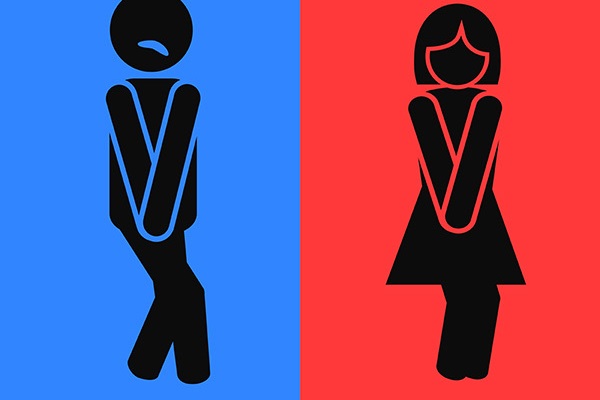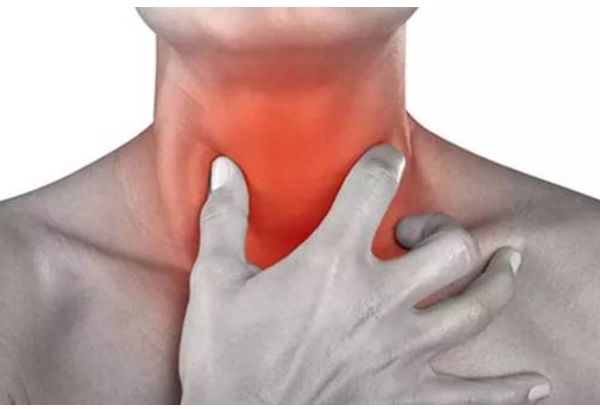Cancer affects us all and in 2019, an estimated 1,62,000+ new cancer cases will be diagnosed. Although there are many types of cancer, varying in terms of expected survival rates, they all share one thing in common — the importance of an early diagnosis. If you are experiencing any of the following 12 signs, please seek a professional medical opinion.
- Pelvic pain
There are many possible causes of pelvic pain, including the development of ovarian cancer. Unfortunately, this type of cancer typically goes unnoticed until it reaches the abdomen and pelvis. When treated early, treatment is often successful, so also be aware of other symptoms, including weight loss, increased urination, bloating, and changes in bowel movements.
- Difficulty swallowing
Formally known as dysphagia, some cancer affects your neck and head, making swallowing difficult. In some cases, there may be a tumor blocking the throat or esophagus. If when you swallow, it feels as though food is getting stuck in your throat, this could be an indication of cancer. This symptom is often mild at first but worsens over time.
- Numbness felt in extremities
Often accompanied by a “pins and needles” feeling, numbness in your feet, hands, legs, or arms can be a sign of many cancers, including spine, prostate, and leukemia. This is referred to as peripheral neuropathy and generally affects approximately 10 to 20 percent of cancer patients.
- Night sweats
While many conditions cause night sweats, including menopause and diabetes, this symptom can also be an early warning sign of certain cancers — namely lymphoma. When cancer is to blame, these night sweats will also most likely be accompanied by a fever and/or weight loss.
- Vision issues
When it comes to cancer and your eyesight, vision changes may be minor or severe. In some cases, vision becomes slightly blurred whereas in other rare cases, complete loss of vision in one eye occurs. Most often, blurred vision and a clouding lens are accompanied by a loss of balance, poor judgment in regards to distance, and even visual hallucinations may develop.
- Stomach pain and/or nausea
When you’re experiencing stomach pain and/or nausea, it will most likely be caused by an ulcer or virus. However, if you are also experiencing symptoms such as poor appetite, weight loss, heartburn, swelling, or blood in your stool, stomach cancer may be to blame. Unfortunately, only 1 in 5 stomach cancers is found early, which is why you need to listen to your body.
- Incontinence
Some forms of cancer damage or alter the nerves and muscles associated with your urinary tract. Most commonly, these cancers are those that occur around the pelvic area, including bladder, colorectal, prostate, cervical, and cancer of the urethra. However, brain cancer can also impact the nerves that control pelvic and bladder muscles.
- Bloody stool
Often unnoticed, blood in your stool could be a sign of colorectal cancer. If you have noticed issues with your bowels, are weak, are experiencing belly pain, and are losing weight, your doctor can run various tests, including blood work. A low red blood cell count may indicate colorectal cancer.
- Anemia
Cancer patients’ red blood cells tend to wear more rapidly than normal, causing symptoms of anemia. Most often, this occurs when you develop a type of cancer that causes any form of blood loss, as well as cancers associated with bone marrow. As your hemoglobin levels decline, you may also feel dizzy, experience swelling in the hands, shortness of breath, and a faster heart rate.
- Hoarseness
Hoarseness is a common symptom among lung cancer patients, most commonly caused by the weakening of the laryngeal nerve. When lung cancer is the cause, patients also often experience chest pain, a persistent cough, wheezing, fatigue, shortness of breath, and recurring respiratory infections.
- Sores that won’t heal
More people are diagnosed with skin cancer each year in the United States than all other cancers combined. Skin cancers are often associated with sores that won’t heal. However, mouth sores are also common, which are often linked to those who drink a lot of alcohol, smoke, or chew tobacco.
- Bleeding between periods
For some women, especially those who live with endometriosis, spotting between periods is fairly normal. However, if you begin to notice irregular bleeding, this can also be a sign of cervical cancer. It is especially important that you seek a medical opinion if your bleeding when you are postmenopausal.
Regardless of the symptom you experience, if it is abnormal in terms of how you normally feel, it never hurts to seek a professional opinion. Be mindful of your body and if cancer is ever to blame, you significantly increase your chances of full recovery when caught early.












